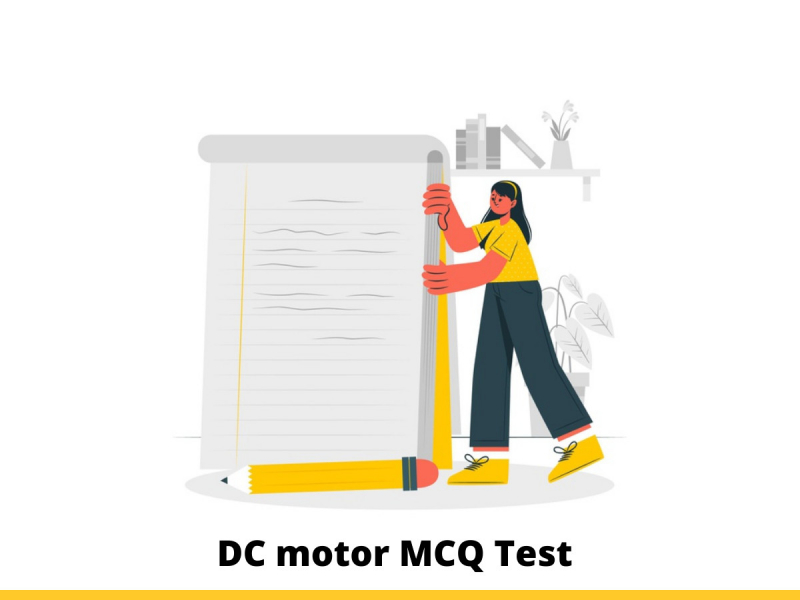Take DC Motor MCQ Test & Online Quiz to test your Knowledge
Below is the DC Motor MCQ test that checks your basic knowledge of DC Motor. This DC Motor MCQ Test contains 20 Multiple Choice Questions. You have to select the right answer to the question. Finally, you can also take the Online Quiz from the Take DC Motor Quiz Button.

